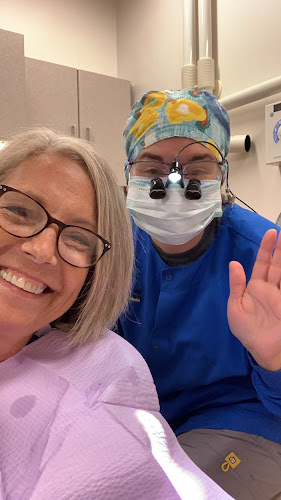My daughter is in her sixth year of teaching high-school math in Colorado. She's in a new district this year, which is an adjustment in itself. Plus COVID.
Her school is using a hybrid approach. She sees students only once a week face-to-face, for 90-minute sessions, and their assignments are posted online on the other days.
Today she had the equivalent of my Bad Monday. She called me over the noon hour to say that in the middle of a class she suddenly thought: I hate this. I don't want to teach anymore.
She's an awesome teacher. She is creative and empathetic and smart and kind.
But at the end of her third week of teaching in a new district, she's struggling. She's anxious. In a normal year, she would have met with her students 15 times by now. Instead, she's seen them thrice.
Teaching is grounded in relationships. Learning demands vulnerability and struggle. No one wants to exhibit these traits to a teacher they don't know and trust.
While I commend my daughter's district for prioritizing community health and safety, the challenge for her to build relationships with students in these surreal COVID teaching times is real.
---------------------
My own Friday was fine--if we can just keep lowering the bar for "fine."
My broadcasting team published their first news show of the year. Our attempt to use individual phones for filming (rather than share a communal camera) was a failure. Even with balancing the phones on tripods, the footage was wiggly; the anchors looked like they were floating. Our sound was terrible.
But hey, we got a show out.
Late.
Producing a video news show during a pandemic--just like shopping, or checking out a book from the library, or meeting up with friends--is now complicated with layers of precaution and inconvenience.
Earlier this week I said I felt like I was teaching with a near-empty toolbox. My students are learning/producing under conditions that essentially tie one hand behind their backs.
Everything is harder.
-------------------------------
Writing about it reminds me that a tenant of our journalism program is to celebrate good tries, even when we fail.
Let's celebrate that.
--------------------
Today my dad's sister Frances was buried in Buffalo Center. She died in April, eight days shy of 100 years. A few years ago, she moved to Friendship Haven, where she could be near my dad, her brother.
Tomorrow, my dad's sister Edith will have her ashes spread across the farm where the 11 siblings grew up during the Great Depression, in painful poverty, but with joy and banter and loyalty that gave them all lifelong sibling sustenance. She was 104 when she died on July 4.
My siblings and I had explained to my dad that he could not attend the services. We tsk-tsked the relatives who promoted the two-day reunion/funeral event despite Iowa's highest-yet COVID numbers.
We arranged for him to ZOOM in to the ceremonies.
But a few days ago my dad made a plea to attend at least Saturday's spreading of Edith's ashes. He practically begged for the chance to "crawl all over the farm" in his motorized wheelchair.
This is my dad's last opportunity to revisit his childhood home, send his sisters to rest. As someone who raised children on a farm, I feel the tug of family and place.
So my sister in Newton volunteered to take them, and Adrienne offered her vehicle to accommodate the scooter. We decided that by arriving late and skipping the meal, our parents could avoid high exposure. They could then spread ashes and survey the farm in the safety of the out-of-doors.
Then.
Friday morning.
My dad called Adrienne at 8 a.m. and asked her to drive him to Buffalo Center today for Frances's funeral.
We had already stretched our COVID comfort zone to allow for Saturday's plan. And as Adrienne reiterated the plan, Dad acquiesced.
But then she heard the catch in his voice and realized he was crying.
----------------------
"I had to take him," Adrienne said when she called late in the afternoon to relay the day's unfolding.
When they arrived at Buffalo Center, the extended family rushed to greet them. Adrienne stepped into the role of hardass one-woman secret-service patrol. She enforced distancing, slapped hand-sanitizer, mandated masking, and STILL felt that boundaries of safety were breached at least a few times.
---------------------
You know? I believe my dad would have accepted the virus and a death sentence in return for attending his last siblings' funerals.
How crazy is it that we have to think in these terms?
So yes, when my parents went to Frances's funeral today, they broke the COVID protections I'd maintained for them from March until August.
I'm okay with that.
Enough.
Be well.
Write.
Allison
 |
Naptime for Wolf.
|




























